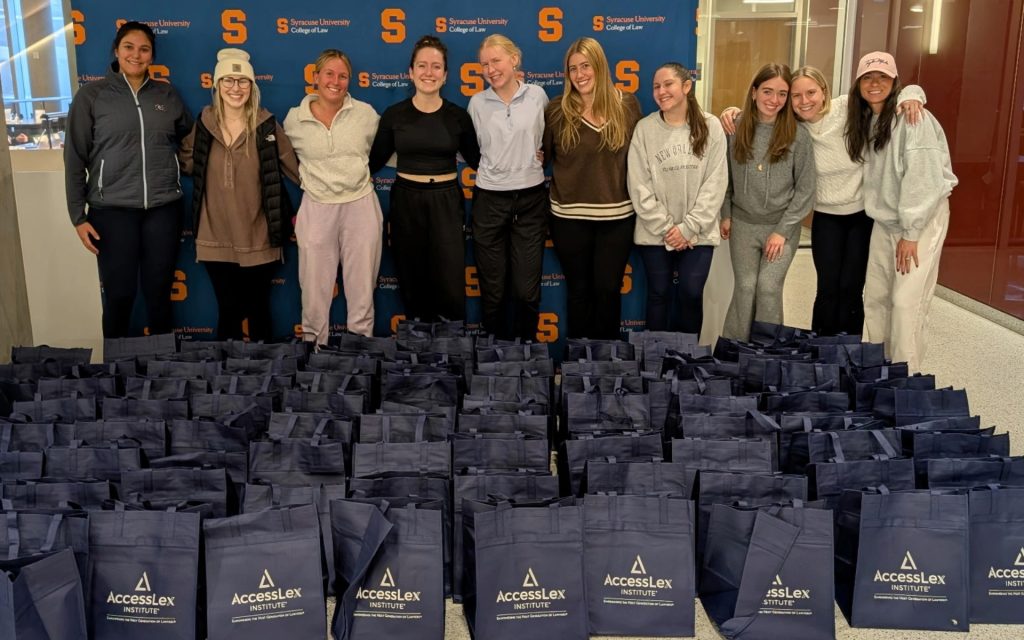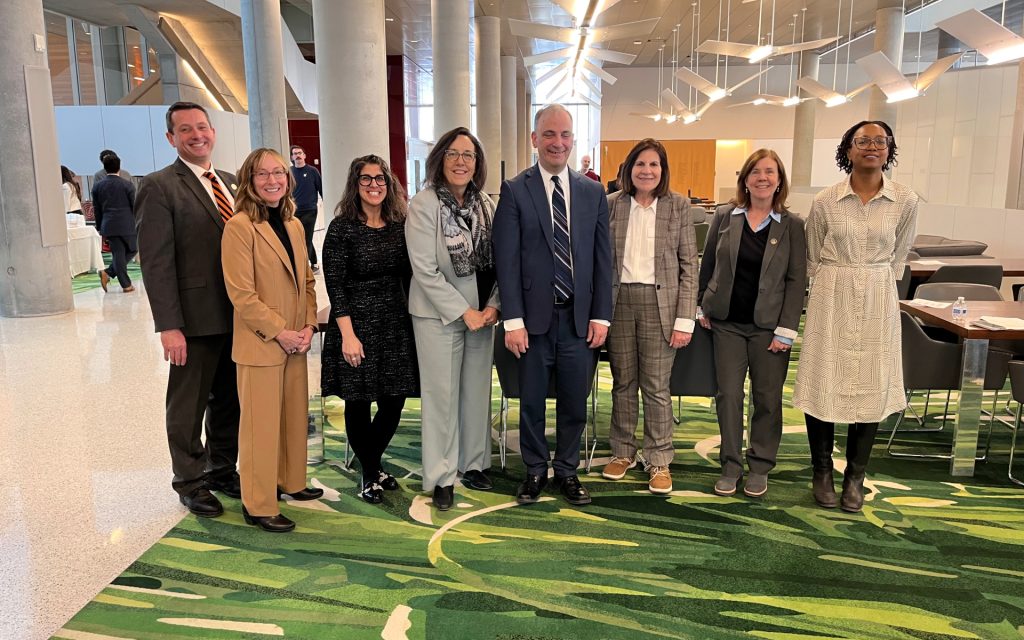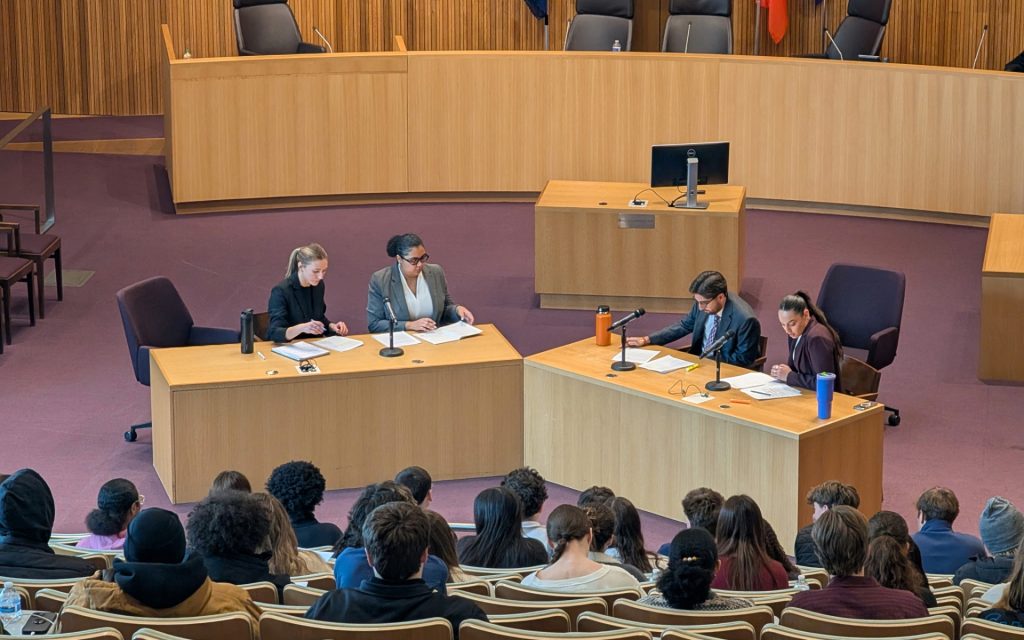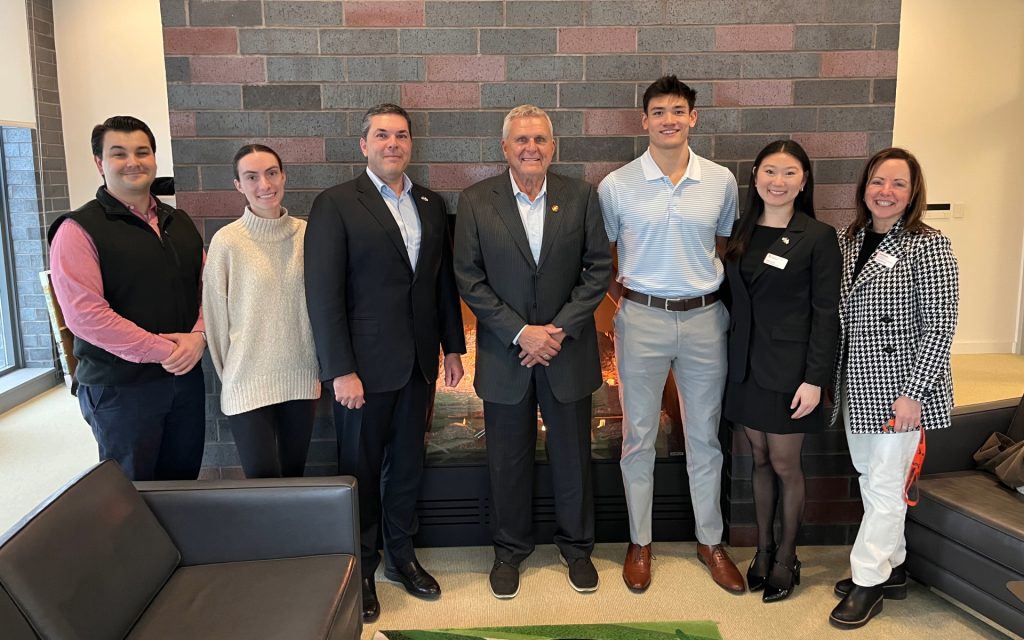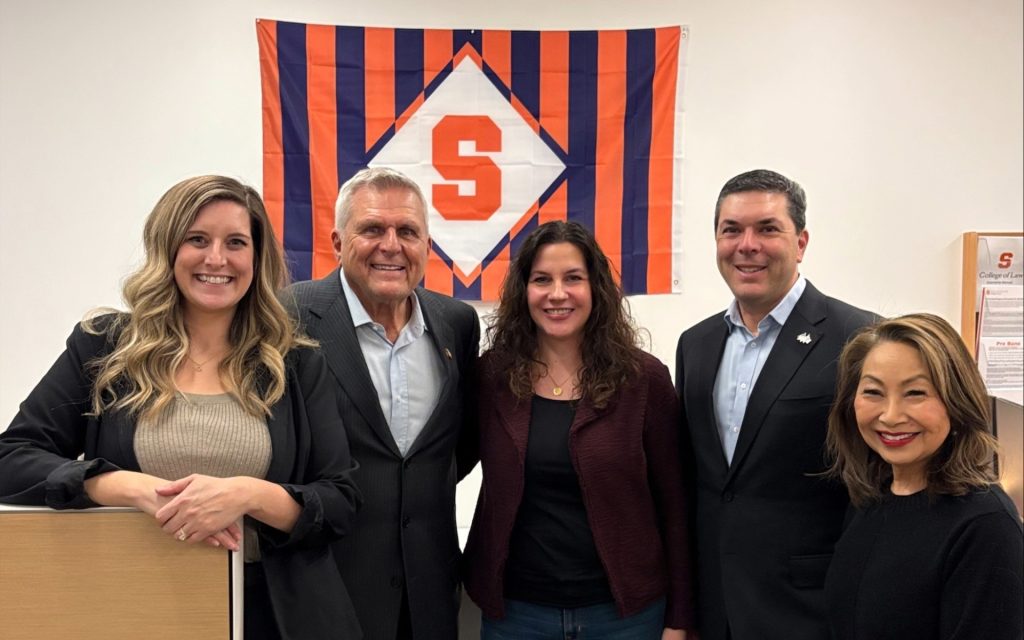The Hon. Thérèse Wiley Dancks L’91 retired from the bench this February after a respected career that spanned several decades. Her accomplishments included serving as a federal magistrate judge for the U.S. District Court for the Northern District of New York since 2012, the first woman in this role; as a founding partner of the law firm of Gale & Dancks LLC with a focus on civil litigation and trial work; a highly involved member and leader of state, local, and specialty bar associations and community organizations, including past president of the Central New York Women’s Bar Association; and the recipient of numerous awards from Syracuse Law, legal organizations, and the Central New York community that reflect her contributions to the law.
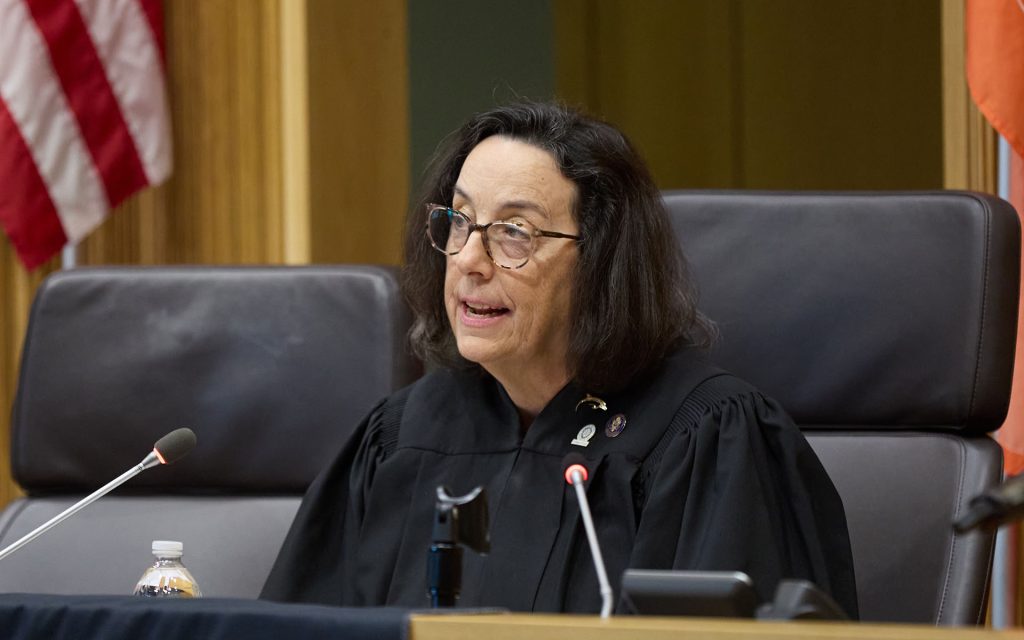
Yet, despite all her achievements, Dancks believes one of her greatest has been mentoring law students and young lawyers, particularly women, as they navigate the legal field.
“It has been my mission throughout my career to pay it forward to the next generation of lawyers,” says Dancks, who has demonstrated that commitment at her alma mater, Syracuse University College of Law, by serving as a mentor to many and offering externships to numerous Syracuse Law students, as well as those at a few other law schools.
She also credits her law clerks who always enthusiastically embraced helping the law students who worked in chambers.
Giving Back and Paying It Forward
Growing up in East Syracuse, New York, as the youngest of eight children, Dancks loved to read and always knew she wanted to help people. Her mother was an early influence, often sharing stories of her job as a court reporter. As an undergraduate at Le Moyne College, Dancks credits her father, who was a professor there, for encouraging her to explore her options and take business law classes. The experience sparked her interest, though she didn’t earn her J.D. from Syracuse Law until age 30. After reaching that milestone, Dancks became committed to helping others do the same.
“Right out of law school, I didn’t necessarily have the financial resources to give, so I gave my time to the College of Law. I always enjoyed talking to groups of students or speaking to them one-on-one, and I also helped to judge moot court and other competitions,” she explains. “I did this in the hope that students, particularly women, would see someone who graduated from the same law school they were attending had been successful and know they could do the same.”
While her career thrived, her commitment to Syracuse Law never wavered. When she became a judge, she continued to guide students at the College of Law.
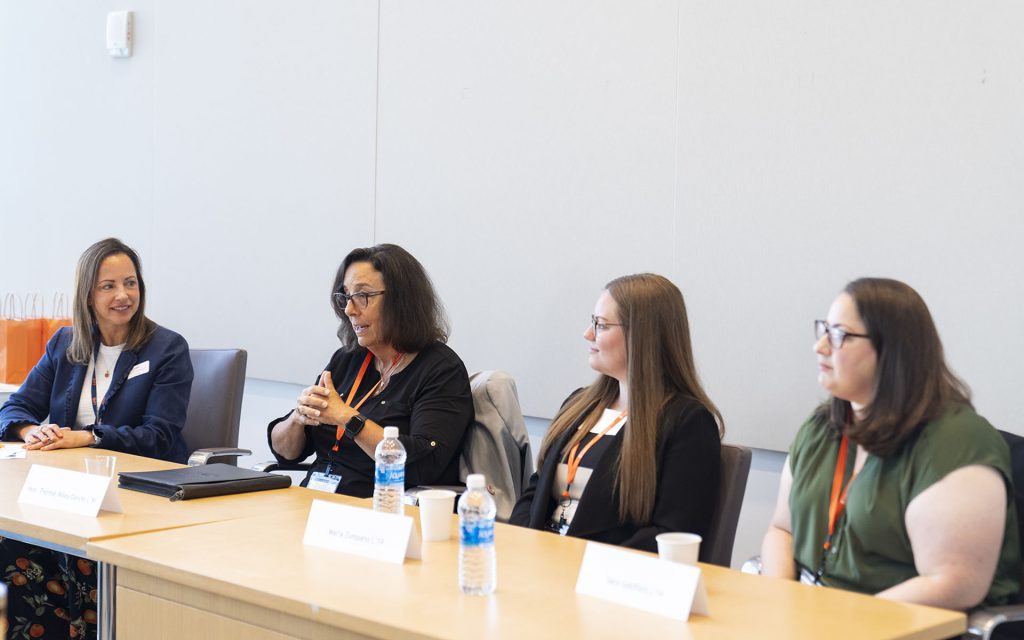
“I loved having student law clerks in my chambers because they are fresh and new, and it’s all very exciting to them,” she says. “It helped me from becoming jaded, and it was refreshing to see the law through young people’s eyes.”
“I give out my email and tell students to reach out to me. Or if they want to talk we go to lunch, although students never pay for lunch—that’s my rule,” she adds.
“I just ask that they pay it forward and be a mentor or role model for other law students and help them on their career paths. If that’s my legacy, that would be awesome.”
Dedication Earns Respect of Colleagues
Her dedication has not gone unnoticed by her colleagues, including the Hon. Deborah Karalunas L’82, administrative judge for the Fifth Judicial District and an adjunct professor at Syracuse Law.
“Her energy in support of others—particularly in advancing gender equality—is boundless,” says Karalunas, who also applauds Dancks’s commitment to the legal community through her work with the Central New York Women’s Bar Association, Vera House, and the Onondaga County Bar Association.
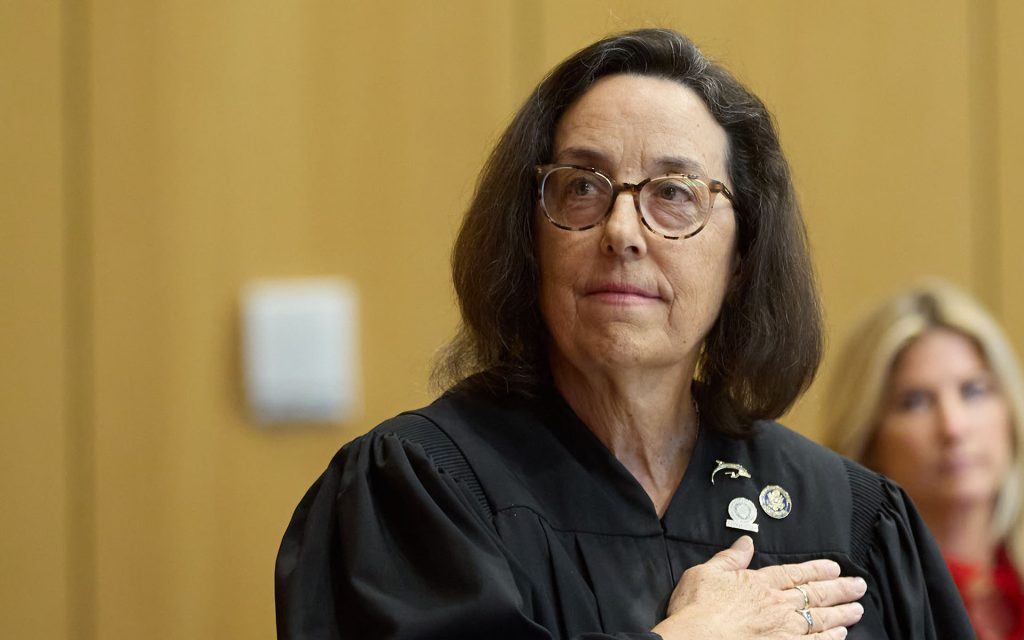
“Her commitment to the legal community began when she was a new lawyer and never wavered. Thérèse has given students exposure to practical legal experience, and she has helped them hone written and analytical skills critical to their success,” she adds.
Student and Alumni Cherish Her Time and Attention
What gives Dancks the most satisfaction, however, is knowing she has made an impact on Syracuse Law students who will contribute to the legal field in their own unique ways.
During an oral advocacy competition, Grace Frey L’25 first saw Dancks as she confidently led the event and gave kind but solid feedback to students.
“When I learned of Judge Dancks I didn’t yet know what a magistrate judge did, but people at the law school spoke so highly of her that I knew I had to work for her,” says Frey.
She eventually secured a “very rewarding” clerkship with Dancks. “Despite her busy schedule, Judge Dancks was available to me, especially in helping me decide what type of law I wanted to pursue. Not all judges would take the time,” Frey says. “When I passed the bar, Judge Dancks called and asked how my new job was going. She inspired me 1,000% and instilled in me the importance of giving back as you move forward.”
Frey is now a term law clerk to the Hon. Debra C. Poplin and the Hon. Jill E. McCook in the Eastern District of Tennessee, and she credits Dancks’s guidance for helping her secure the role.
Other Syracuse Law alumni have had the privilege of getting to know Dancks through organizations within the legal community.
“Judge Dancks is one of the most generous humans, and she had a truly demanding job yet would still go above and beyond,” says Colleen Gibbons L’17, current president of the Central New York Women’s Bar Association. “She is very thoughtful and genuine in a way that was really helpful to me—explaining her own career path, sharing her experiences, both good and bad; helping develop a strong network of women, and still having a depth of humility that is astonishing.”
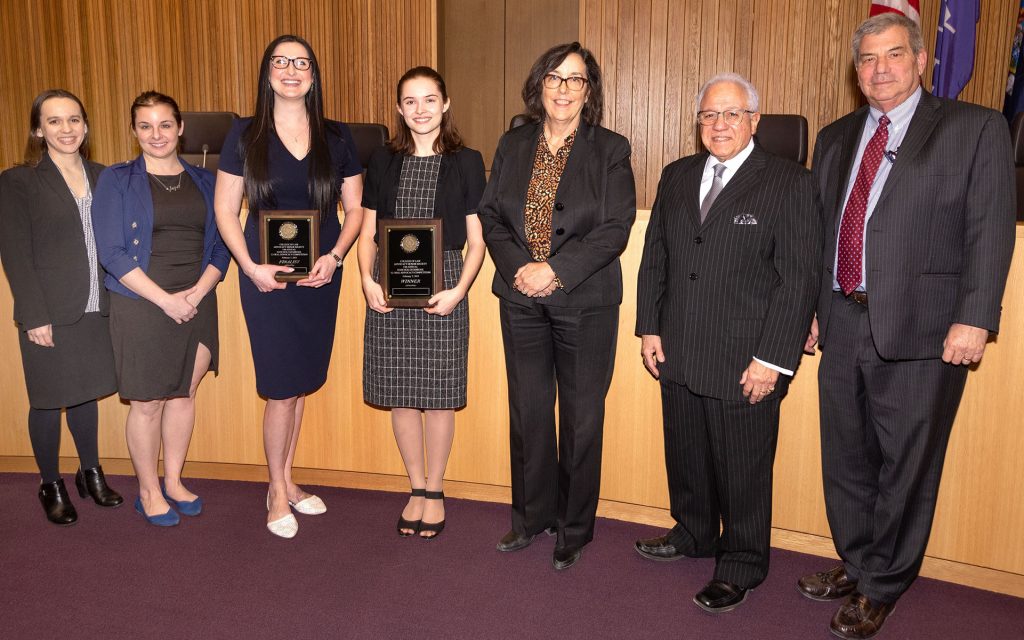
Finding Her Next Chapter and Not Failing at Retirement
Dancks will probably never know quite how many people she has left a positive impression on, as there are too many to count. What she is certain of, however, is that she is “not going to fail at retirement.”
“I want to read by the water without having to drag work along with me,” she says. “I’ll keep my license for a few years, so I can do some pro bono work, possibly in landlord tenant court or small claims arbitration. Maybe at some point I’ll teach a class or a seminar. They know where to find me.”
Dancks also intends to volunteer for local organizations, which will probably include a cat shelter, a hospital, and reading programs in elementary schools, including the Read Across America Program, an initiative that the Central New York Women’s Bar Association has taken on to make sure children learn to love reading.
“It’s going to be a different rhythm, but I want some time to explore and see what I want to do in my next chapter,” Dancks says. “Whatever that is, I’m certain I’ll continue to work for justice in some way to help make the world a little bit better.”

